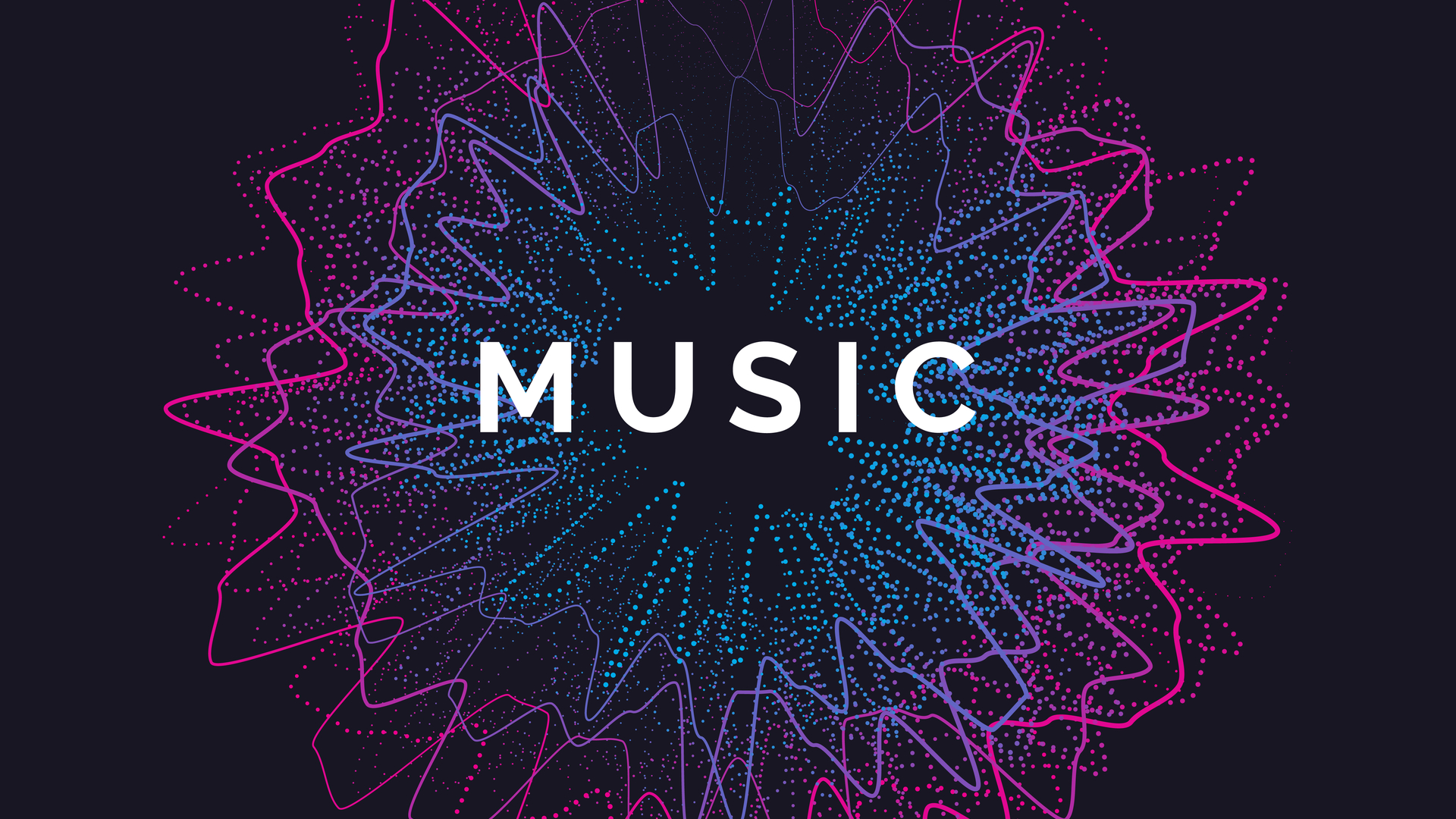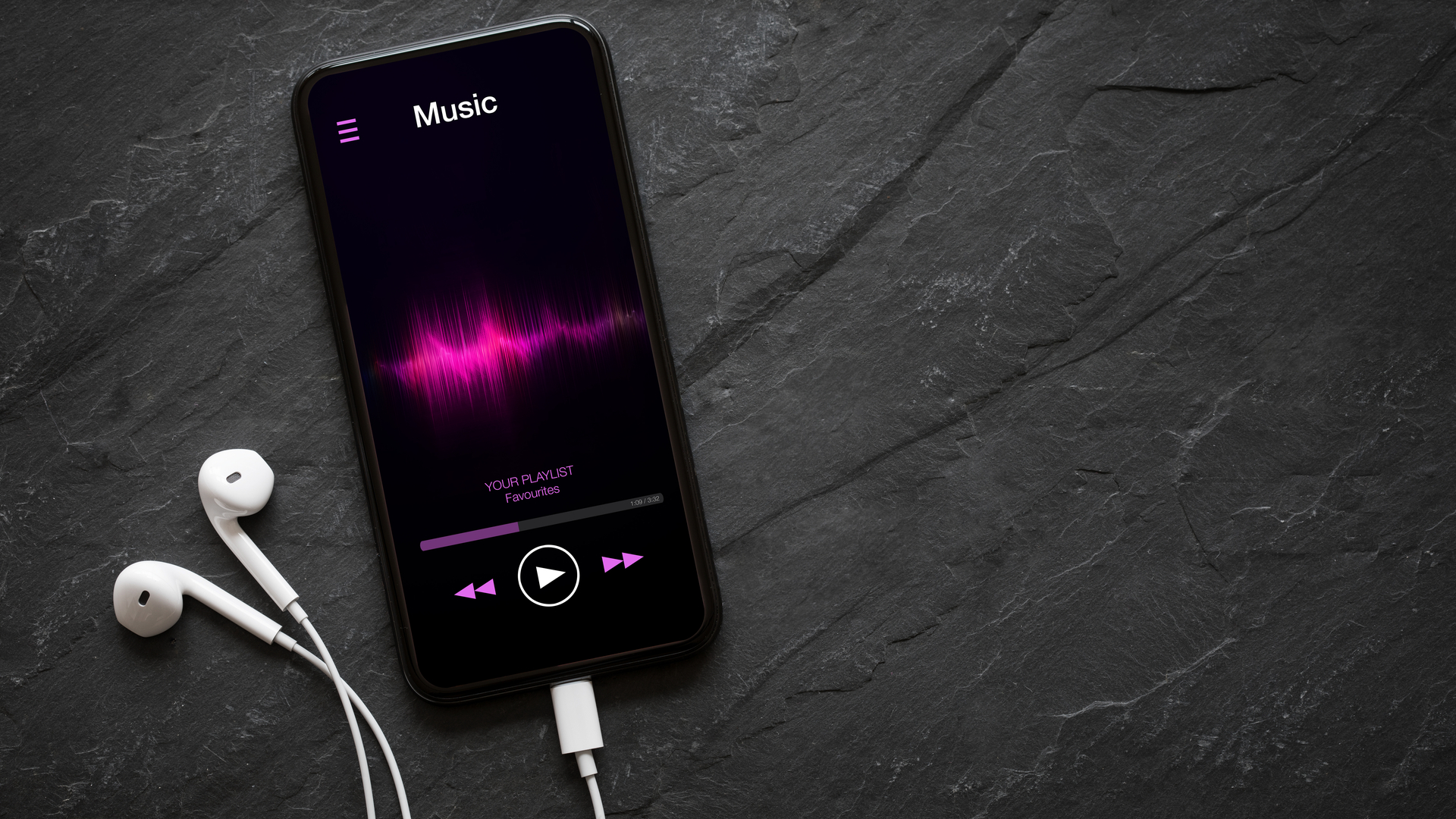Audio file formats: What they are and why they matter to your music listening
From MP3 to FLAC and everything in between, get the ins and outs on audio file formats and what they do

Here at Tom’s Guide our expert editors are committed to bringing you the best news, reviews and guides to help you stay informed and ahead of the curve!
You are now subscribed
Your newsletter sign-up was successful
Want to add more newsletters?

Daily (Mon-Sun)
Tom's Guide Daily
Sign up to get the latest updates on all of your favorite content! From cutting-edge tech news and the hottest streaming buzz to unbeatable deals on the best products and in-depth reviews, we’ve got you covered.

Weekly on Thursday
Tom's AI Guide
Be AI savvy with your weekly newsletter summing up all the biggest AI news you need to know. Plus, analysis from our AI editor and tips on how to use the latest AI tools!

Weekly on Friday
Tom's iGuide
Unlock the vast world of Apple news straight to your inbox. With coverage on everything from exciting product launches to essential software updates, this is your go-to source for the latest updates on all the best Apple content.

Weekly on Monday
Tom's Streaming Guide
Our weekly newsletter is expertly crafted to immerse you in the world of streaming. Stay updated on the latest releases and our top recommendations across your favorite streaming platforms.
Join the club
Get full access to premium articles, exclusive features and a growing list of member rewards.
The type of audio file format (or codec) used by music streaming services and download sites can have a big influence on the sound quality you experience for the music you enjoy listening to. Efficient audio compression techniques manage to squeeze large amounts of audio data into more manageable file sizes by removing some information from a recording, but the process can have a detrimental affect on the overall sound quality of your favorite tunes and your listening experience. Ultimately, this means you're hearing something less than the artist(s) originally intended when the recording was made but whether you notice any degradation in sound quality, can depend on the kind of equipment you're using to listening on.
To get the most from your music you need to hear it on great-sounding equipment that has a natural sound and produces a full range of frequencies, like the models found in our best headphones, best wireless earbuds or one of the best Bluetooth speakers. And to find out which audio formats deliver the best sound quality for your tunes and as the artist(s) originally intended, read on...
- What is high-resolution audio?
- Apple Music vs Amazon Music
- Spotify controversy live blog — latest news and updates
Digital audio types
Lossy audio
This is a compression technique that does not decompress audio files to their original data amount. Lossy methods provide high degrees of digital compression, which results in smaller files. In these cases, some sound waves are removed, which affects the quality of sound in an audio file. Lossy compression is not recommended in professional settings where high quality is paramount.
Lossless audio
This is a compression technique that decompresses audio files back to their original data amount. Lossless methods can provide high degrees of digital compression, but there is no loss in size or sound quality. Lossless compression is ideal in professional audio settings where complete files are needed. Lossless compression music formats include FLAC, ALAC and WMA Lossless.
Uncompressed audio
This is an audio file that has no compression applied to it. The sound in uncompressed audio files remains the same as when it was recorded. Examples include PCM, AIFF and WAV formats.
Audio codec formats

FLAC (Free Lossless Audio Codec)
FLAC delivers CD-quality audio in a file size smaller than an actual CD. It's also a non-proprietary, open-source codec that's great for software developers who want to use lossless audio. Though FLAC files are easily accessible, they can be six times larger than MP3 files, so they take longer to download. This format is not compatible with all devices and software, but it sounds great streaming over Wi-Fi or Bluetooth.
- Streaming services using FLAC: Tidal, Murfie, Deezer Premium, Amazon Music Unlimited and Qobuz
- Download services using FLAC: Linn Records and HD Tracks
WAV (Waveform Audio Format)
WAV is an uncompressed audio format that's great to use if you want to get the original recorded material without compromising sound quality. WAV files are ideal for shorter sound bites because their uncompressed form means they're large files, making them difficult to stream. This is especially true in cases with limited bandwidth. The audio in these files is crisp, and the sound is good over Bluetooth.
Get instant access to breaking news, the hottest reviews, great deals and helpful tips.
MP3 (Moving Picture Experts Group Layer-3 Audio)
MP3 is one of the most popular audio codecs and became a household name for its ability to reduce file sizes for the first wave of solid state music players. MP3 files use lossy compression, which compacts audio drastically. In some cases, MP3 files can be 10 times smaller than WAV files. This compression method is versatile and works on nearly all playback devices.
Although MP3s are major space savers, the bit rate at which they're recorded has an effect on sound quality. For example, MP3s encoded at 128kbps don't sound as great as those encoded at 320kbps, but listeners need to determine whether they prefer sound over storage. MP3s have been used for streaming in the past, but with hi-res streaming increasingly more popular, they're not the only codec format option out there.
- Streaming services using MP3: Amazon Prime Music, Amazon Autorip, TuneIn
WMA (Windows Media Audio)
WMA is available in lossy and lossless WMA formats, which gives listeners some choice. Generally, WMA files are smaller than their uncompressed counterparts, and similar in functionality to MP3s and FLAC files. Though WMA offers versatility, it's not compatible with all devices, especially Apple devices. It's possible to stream audio in WMA format, but i major streaming providers do not use it. Fortunately, for the average listener, this format sounds good over Bluetooth. Only critical ears would hear a difference in quality.
- Media platforms supporting WMA: foobar2000 and MediaMonkey
ALAC (Apple Lossless Audio Codec)
ALAC sounds identical to original recorded audio, but it's compressed to a smaller size without discarding bits. ALAC works primarily with Apple products, which makes the format a bit limited for folks without iOS devices. It also takes a longer time to download than lossy formats do, but it sounds great over Bluetooth. It's possible to stream with ALAC, but this codec isn't commonly used because of its incompatibility with non-Apple devices.
- Services supporting ALAC: iTunes, HD Tracks, Linn Records, Bowers & Wilkins Society of Sound
AAC (Advanced Audio Coding)
AAC is another lossy codec that provides small audio files and works great for online streaming. AAC files aren't helpful if you need a near-replica of the original recording, because bits are discarded. But it sounds perfectly fine otherwise. The compressed file size is ideal for mobile devices and it's used as the default format for the likes of Apple Music and Tidal.
- Streaming services using AAC: Spotify (webplayer only), Apple Music, Tidal, Pandora
Ogg Vorbis
Ogg Vorbis is an open-source and patent-free audio codec that's great for streaming over the internet without compromising speed. Ogg Vorbis provides impressive sound at lower bit rates than other lossy formats. The only downside of Ogg Vorbis is that it compresses audio and discards data for smaller file sizes. However, it transfers audio quickly and sounds fine over Bluetooth. Because the average music lover doesn't use this format to compress audio, you won't find many compatible devices — although the fact that Spotify uses it for all phone and desktop streaming means that it is widely used.
- Streaming services supporting Ogg Vorbis: Spotify, Icecast, MainStream
MQA (Master Quality Authenticated)
A lossless format that uses a sophisticated compression packaging process to pack and unpack large audio files to enable efficient data stream transfers. The format is used by Tidal on its hi-res Masters content to deliver high-resolution (higher than CD quality) to its music content. MQA files can be packaged inside any lossless container such as FLAC, WAV or ALAC file formats but you'll need compatible hardware, such as a music streamer or portable music player, or software such as the Tidal desktop app, to decode the MQA files.
- Streaming services supporting MQA: Tidal Master

Lee was Tom's Guide's audio editor, where he covered all things audio for Tom's Guide, including headphones, wireless speakers and soundbars and loves to connect and share the mindfulness benefits that listening to music in the very best quality can bring. As a former editor of the U.K.'s Hi-Fi Choice magazine, Lee is passionate about all kinds of audio tech and has been providing sound advice to enable consumers to make informed buying decisions since he joined Which? magazine as a product tester in the 1990s. Lee has joined the passionate audio experts at audiograde.uk where he writes about luxury audio and Hi-Fi.
 Club Benefits
Club Benefits










